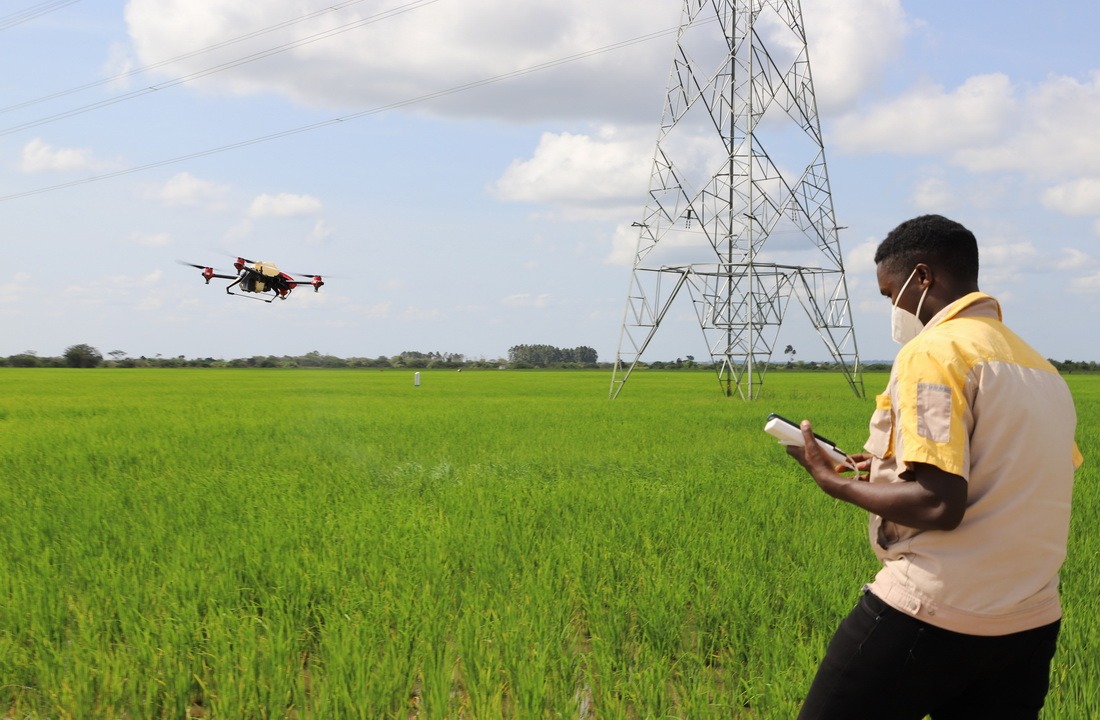
How Africa can champion a digital future through China cooperation » Capital News
By Guan Chao
Signs of bloom appear in the Chinese economy, as key indicators this spring point to expansion. The world’s second-largest economy showcases its new growth engine amid a flurry of international events. Analysts are rethinking their once bleak expectations for China, focusing instead on the potential impact of a compelling Chinese buzz term.
First proposed last September by Chinese President Xi Jinping, “new quality productive forces” refer to productivity freed from traditional growth mode and development paths. Xi elaborated on areas such as green development, economic reforms, opening up, and talent cultivation, indicating how to promote the “new forces”.
Innovations that can generate new industries and new models were a core element, said Xi, building further on the philosophy earlier this year. He stressed reshaping traditional industries and developing the digital economy to better apply innovation. The theory comes timely when much of the world is anticipating how artificial intelligence (AI) may power a digital revolution.
Last year saw AI coming into its own. Such was the impact, 2023 was widely dubbed on social networks as “Year One” for large language models (LLM) which spurred a surge of generative AI products cascading into hungry markets. However, the sheer pace of this revolution has brought concern about whether the South can keep up.
“The new quality productive forces signify a quest for a people-centered and balanced development that at once promotes inclusive human development and secures the planet,” said Peter Kagwanja, President and Chief Executive at the Africa Policy Institute (API), observing that Africa can access more public goods via cooperation with China.
Delegates at a recent China Media Group (CMG) Forum echoed these sentiments and called for an even stronger drive towards inclusive innovation.
- What is in store for Africa?
The “new quality productive forces” earmark the digital economy in particular for applying innovative ideas and integrate industries—traditional and new—into the real economy. It opens up more possibilities for cooperation and progress.
For decades, bridging the digital divide has been a pivotal part of China’s engagement in Africa. Statistics show that China’s ICT infrastructure projects have benefited some 700 million people across the continent. China’s assistance with e-commerce development has inspired at least 12,000 online businesses. Chinese smart phones, known for their affordability and localized features, are helping more people get online.
But that cannot be all: hundreds of millions of people across Africa are still not connected, urging concerted efforts. Digital innovators can help improve other sectors and general economic structures across the continent. Meanwhile, China must continue sharing its successes with the rest of the world through personnel exchanges and education.
This was something Kenyan President William Ruto referenced last October, when he said Chinese investment in Africa’s digital economy could unlock “potential for inclusivity, democracy, and the empowerment of individuals and groups.”
There are more to expect, as Chinese initiatives are helping African countries build more data facilities which the continent urgently needs to further its AI development; in agriculture, Chinese smart drones are generating better yields; in health, diagnoses could one day be offered not only by Chinese medics in the field, but also remotely via customized algorithms; in energy, Chinese expertise is constructing smart grids which can help boost Africa’s energy transition. And, speaking of energy transition, when China’s smart ideas in this sector meet Africa’s budding EV industry, it can herald a new era for Africa’s value-added manufacturing in both green and digital.
The “new quality productive forces” emphasize creating due mechanisms to promote education and incentivize innovation. China’s traditional bonds with African countries, in sectors like education and business, which are represented by the Luban Workshop and the newly-upgraded China-Africa Universities 100 Cooperation Plan, will no doubt facilitate knowledge transfer and help cultivate digital talent in Africa.
“It is more helpful to teach people how to fish than to just give them fish.” This famous old Chinese saying aptly describes China’s equal-footed approach in cooperation with Africa.
China’s engagements with Africa have always been built on their sound relations. China cherishes friendships and respects the independent choices of African countries. While implementing projects around Africa, it also tries to adapt its approach to local needs whilst delivering concrete outcomes.
With a strong belief in cooperation, China is proud to initiate frameworks such as the Belt and Road Initiative (BRI) and Forum on China-Africa Cooperation (FOCAC), which have embraced the concept that “the whole is greater than the sum of its parts.” Moreover, China’s development philosophy is not only self-sustaining but it’s crafted to seek sustainable cooperation. Through empowerment and capacity-building, China continues to promote common development with Africa. These dynamic partnerships are ready to engage with this new and vibrant era of innovation.
The new trend of AI was born in a protectionist environment. But in this already imbalanced world, technology blockades are only exacerbating the North-South divide. Like many new powerful technologies, unfortunately, AI can have negative as well as positive impacts. But for China and Africa, who share a similar vision of innovation for all, this digital revolution is not about competition, but a celebration of a diversified and inclusive digital future. (END)
(Guan Chao is a journalist with CGTN Africa)
